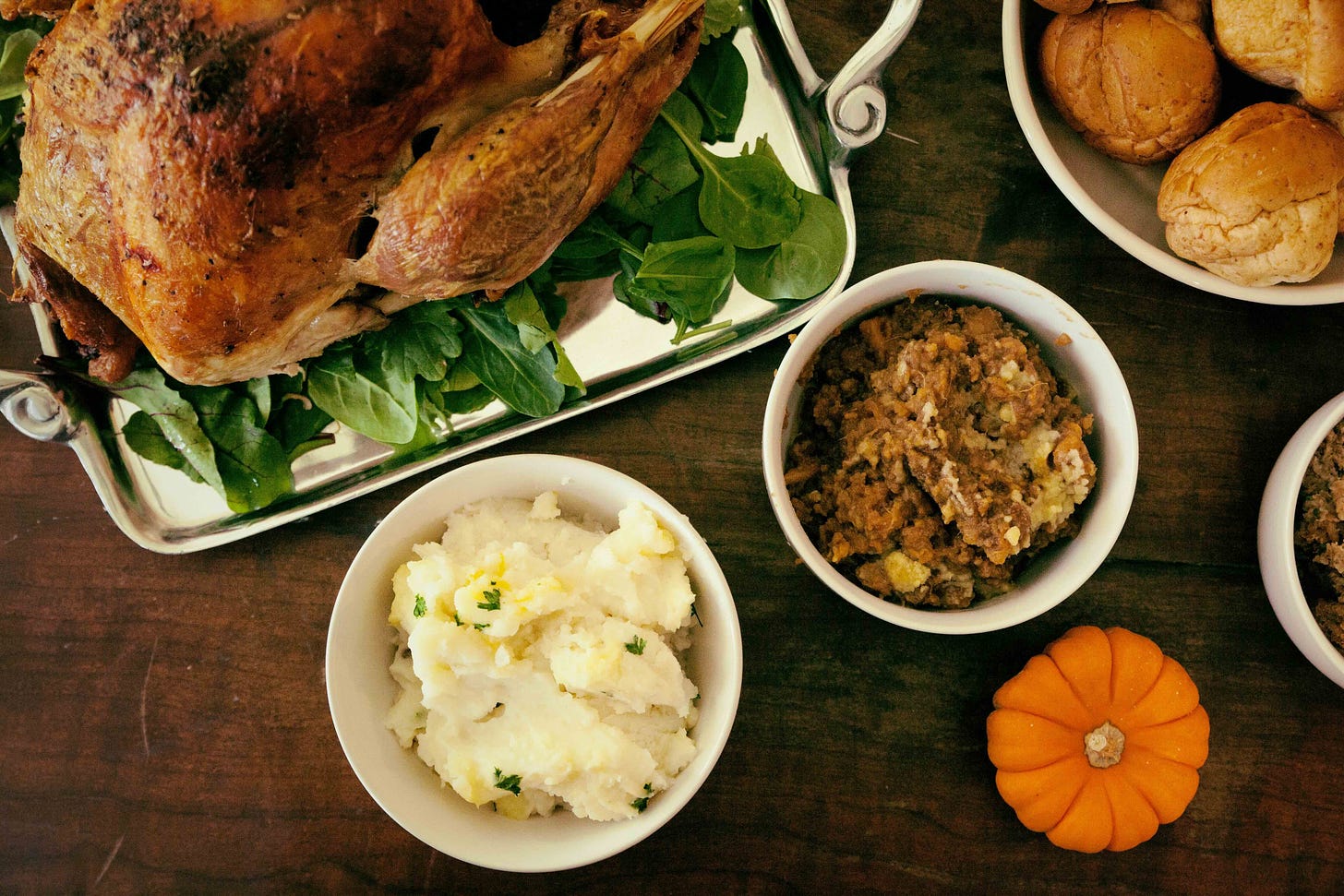7 proven strategies to avoid holiday weight gain (and still enjoy yourself)
The science doesn't lie: The holidays are the most important time of the year for health.
Post summary
The holidays are the make-or-break season for long-term health.
The average person gains 1 to 5 pounds between Thanksgiving and New Year’s—but they typically don’t lose it.
Research shows that this holiday weight accumulates year over year and accounts for why people tend to gain weight as they age.
Hence, avoiding holiday weight gain is critical for staying healthy over your lifespan.
We’re highlighting seven research and practice-backed strategies for approaching holiday nutrition.
They’ll help you avoid holiday weight gain, leverage it for better fitness, develop healthy habits that last all year, and more.
Housekeeping
Full access to this post is for Members of Two Percent. Join us to get practical health advice that works.
Thanks to our partners, who make the best gear in their categories.
GOREWEAR: Maker of cutting-edge, science-backed endurance apparel that performs no matter what nature throws at you. Their gear has the official “Have Fun, Don’t Die” seal of approval. Check out the Concurve Jacket.
Momentous Nutrition: The company that made me feel good about supplements again. My picks: Essential Plant Protein + Multivitamin.
GORUCK: Maker of the best rucking gear (not stuff). My picks: Rucker 4.0 for rucking and GR1 for travel.
Use discount code EASTER30 for 30% off of GOREWEAR and EASTER for a discount at Momentous and GORUCK.
Audio/podcast edition
The post
Today is likely the lightest you’ll be for the rest of the year.
The numbers don’t lie: Most people gain 1 to 5 pounds from Thanksgiving to New Year’s.
And this isn’t just an American phenomenon. People everywhere tend to gain weight around their major holidays.
A New England Journal of Medicine study found that the Japanese gain a significant amount of weight around the Golden Week holiday. Germans bulk up around the Easter holiday, which, like Hasselhoff, is apparently big in Germany.
Times of feasting and weight gain aren’t new.
For example, our hunter-gatherer ancestors had big feasts timed to hunting seasons. As early as 800 B.C., the Greeks held epic parties where they consumed a jaw-dropping amount of oxen and other food.
Here’s what is new: We have fewer periods of “famine” when we lose the weight we gained during our feast.
In the past, our weight fluctuated with the seasons and what nature offered us. Thankfully we’ve mostly lost the forced famine.
But we now seemingly have only two variations of feasting:
We’re either kind of feasting, where we maintain our weight.
Or we’re definitely feasting—like around the holidays—where we gain weight.
People today don’t typically gain weight in a linear fashion, like a quarter pound each month for a total of three pounds at the end of the year.
Most of us maintain our weight most of the year and then go YOLO from Thanksgiving to New Year’s and pack on the pounds.
The weight sticks around until next holiday season, when we put on another one to five pounds, and so on and so forth until we find ourselves much heavier than we want.
The scientists who studied this wrote:
“As this gain is not reversed during spring or summer months … [this] weight gain appears likely to contribute to the increase in body weight that frequently occurs during adulthood.”
The solution: Use one or more of these seven strategies. They’ll help you avoid holiday weight gain, leverage it for better fitness, develop healthy habits that last all year, and more.
All of the research says this stretch from now until New Year’s matters. It’s critical for our long-term health. So let’s make it count.
Strategies to avoid holiday gain
I’ve pulled these from research, interviews with scientists, and even your collective wisdom in our recent Two Percent chat around Thanksgiving health strategies.
1. Try intermittent fasting
Takeaway: Eat just one big meal on holidays.
Fasting isn’t magic for weight loss. At the end of the day, how much you eat determines weight gain more than when you eat.
But here’s why fasting can work: By limiting the time you eat, you often eat less. It’s an uncomplicated tactic to control calories.
To use it, don’t eat until you sit down for your holiday meal, then stop eating afterward.
The average person eats 3,000 to 4,500 calories during their Thanksgiving meal, so the damage from that one meal won’t be as bad as you think. And you can basically eat what you want and enjoy yourself.
Or, for the extreme types, you can do what Two Percent reader Matt Hirschberg is doing: “a 3-day water and black coffee fast from Monday through Wednesday, followed by a 5-mile ruck Thanksgiving morning. After that, it’s time to let loose and enjoy life YOLO style!”
Would I do this? Nope. But work what works for you.




